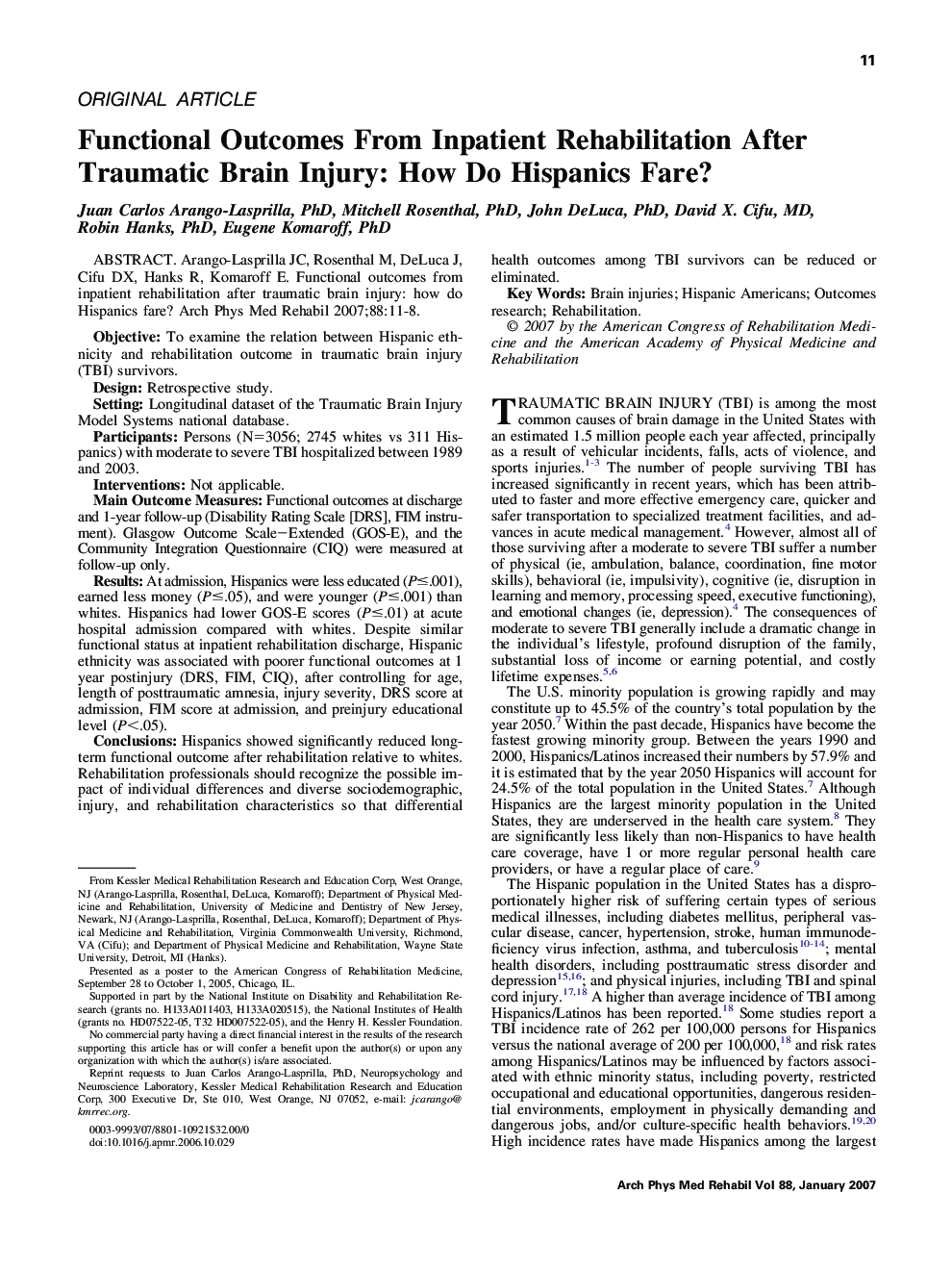| Article ID | Journal | Published Year | Pages | File Type |
|---|---|---|---|---|
| 3451566 | Archives of Physical Medicine and Rehabilitation | 2007 | 8 Pages |
Arango-Lasprilla JC, Rosenthal M, DeLuca J, Cifu DX, Hanks R, Komaroff E. Functional outcomes from inpatient rehabilitation after traumatic brain injury: how do Hispanics fare?ObjectiveTo examine the relation between Hispanic ethnicity and rehabilitation outcome in traumatic brain injury (TBI) survivors.DesignRetrospective study.SettingLongitudinal dataset of the Traumatic Brain Injury Model Systems national database.ParticipantsPersons (N=3056; 2745 whites vs 311 Hispanics) with moderate to severe TBI hospitalized between 1989 and 2003.InterventionsNot applicable.Main Outcome MeasuresFunctional outcomes at discharge and 1-year follow-up (Disability Rating Scale [DRS], FIM instrument). Glasgow Outcome Scale−Extended (GOS-E), and the Community Integration Questionnaire (CIQ) were measured at follow-up only.ResultsAt admission, Hispanics were less educated (P≤.001), earned less money (P≤.05), and were younger (P≤.001) than whites. Hispanics had lower GOS-E scores (P≤.01) at acute hospital admission compared with whites. Despite similar functional status at inpatient rehabilitation discharge, Hispanic ethnicity was associated with poorer functional outcomes at 1 year postinjury (DRS, FIM, CIQ), after controlling for age, length of posttraumatic amnesia, injury severity, DRS score at admission, FIM score at admission, and preinjury educational level (P<.05).ConclusionsHispanics showed significantly reduced long-term functional outcome after rehabilitation relative to whites. Rehabilitation professionals should recognize the possible impact of individual differences and diverse sociodemographic, injury, and rehabilitation characteristics so that differential health outcomes among TBI survivors can be reduced or eliminated.
